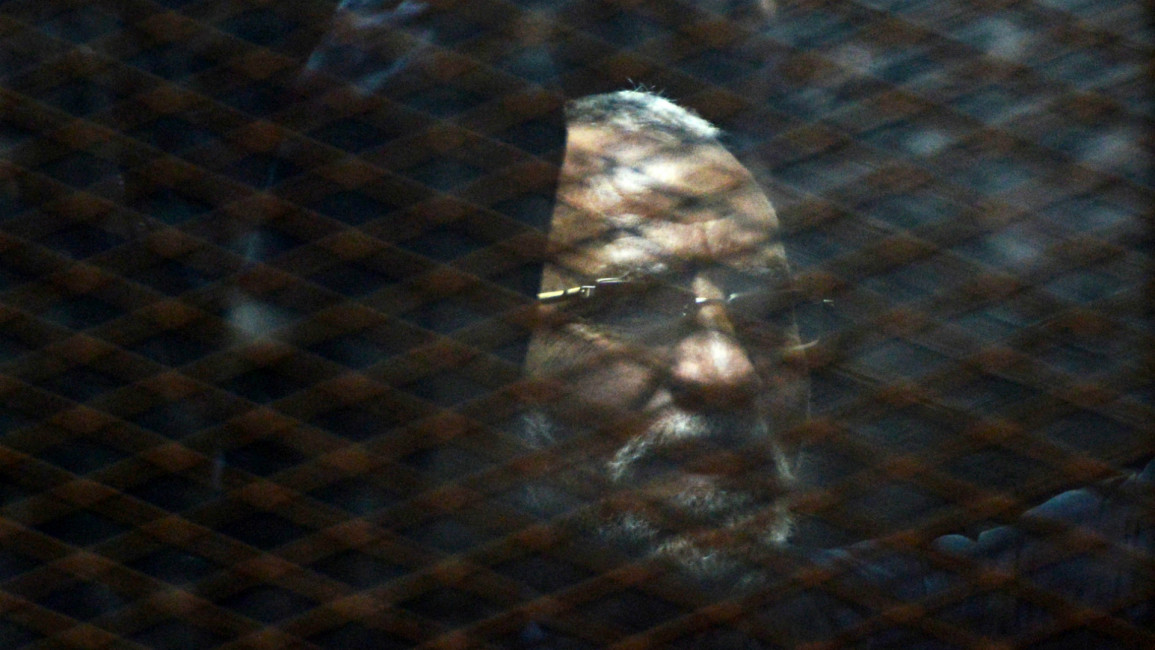Egypt upholds death sentence for Brotherhood head
A court in Cairo has confirmed death sentences for Muslim Brotherhood leader Mohamed Badie and 11 other defendants.
The Giza Criminal Court has upheld sentences handed down to the Supreme Guide of the Muslim Brotherhood, Badie and 13 others.
Badie was found guilty of directing violent protests by Muslim Brotherhood members following the military's ouster of President Mohammad Morsi in 2013.
The court sentenced him to death for "acts meant to disrupt the constitution and the law, prevent state and public institutions from exercising their functions, assault personal freedoms and public rights, and undermine national unity and civil peace."
"[The defendants] led the Muslim Brotherhood group, which seeks to topple the regime by force, assaulted personnel and structures of the armed forces and police, and assaulted public facilities," read the ruling.
Badie and his co-defendents were accused of directing violence during and after sit-ins at public squares in Cairo by Brotherhood supporters in the summer of 2013. But after state security forces broke up the Rabaa al-Adawiya sit-in, Human Rights Watch said the government was guilty of killing at least 817 people in what it said were likely crimes against humanity.
The court sentenced 37 other defendants in the case to life imprisonment with hard labour. The ruling was issued on Saturday morning by the court chaired by Judge Mohamed Nagy Shehata.
Father and son face death, life in prison
The court also sentenced an Islamic academic and his son, who is also an American citizen, to death and life in prison respectively.
| The most difficult thing I have been subjected to is having to choose between freedom and my Egyptian nationality |
Salah Sultan was secretary general of the Supreme Council for Islamic Affairs in Egypt.
His son Mohamed, a 27-year-old activist who has been on the longest hunger strike in the history of Egypt, claims he was pressured to renounce his Egyptian citizenship in return for his immediate release. He rejected the deal.
"The most difficult thing I have been subjected to is having to choose between freedom and my Egyptian nationality," he told the judge.
"I was offered immediate release if I renounced my Egyptian citizenship, but it is impossible for me to do so in return for freedom, even if this means having to spend my whole life in prison."
Mohamed has a degree in economics from the University of Ohio and worked as business development manager at a petroleum services company. He returned to Egypt during the revolution of January 25, 2011.
In 2013, he took part in the sit-in at Rabiah Al-Adawiah Square to protest the military coup against President Morsi. He was shot in the arm during the violent break up of the sit-in in August 2013.
Mohamed was arrested on August 25, 2013 at his home, as the authorities raided the house searching for his father. An arrest warrant was issued two days later.
During his detention, Mohamed was transferred to five different prisons and police stations, sometimes while blindfolded, and was tortured on several occasions.
Mohamed spent more than a year in detention without being charged, prompting him to go on hunger strike. His hunger strike became the longest in the history of Egypt's prisons, lasting for more than 400 days. Now he faces spending the rest of his life inside.
This is an edited translation from our Arabic edition.



